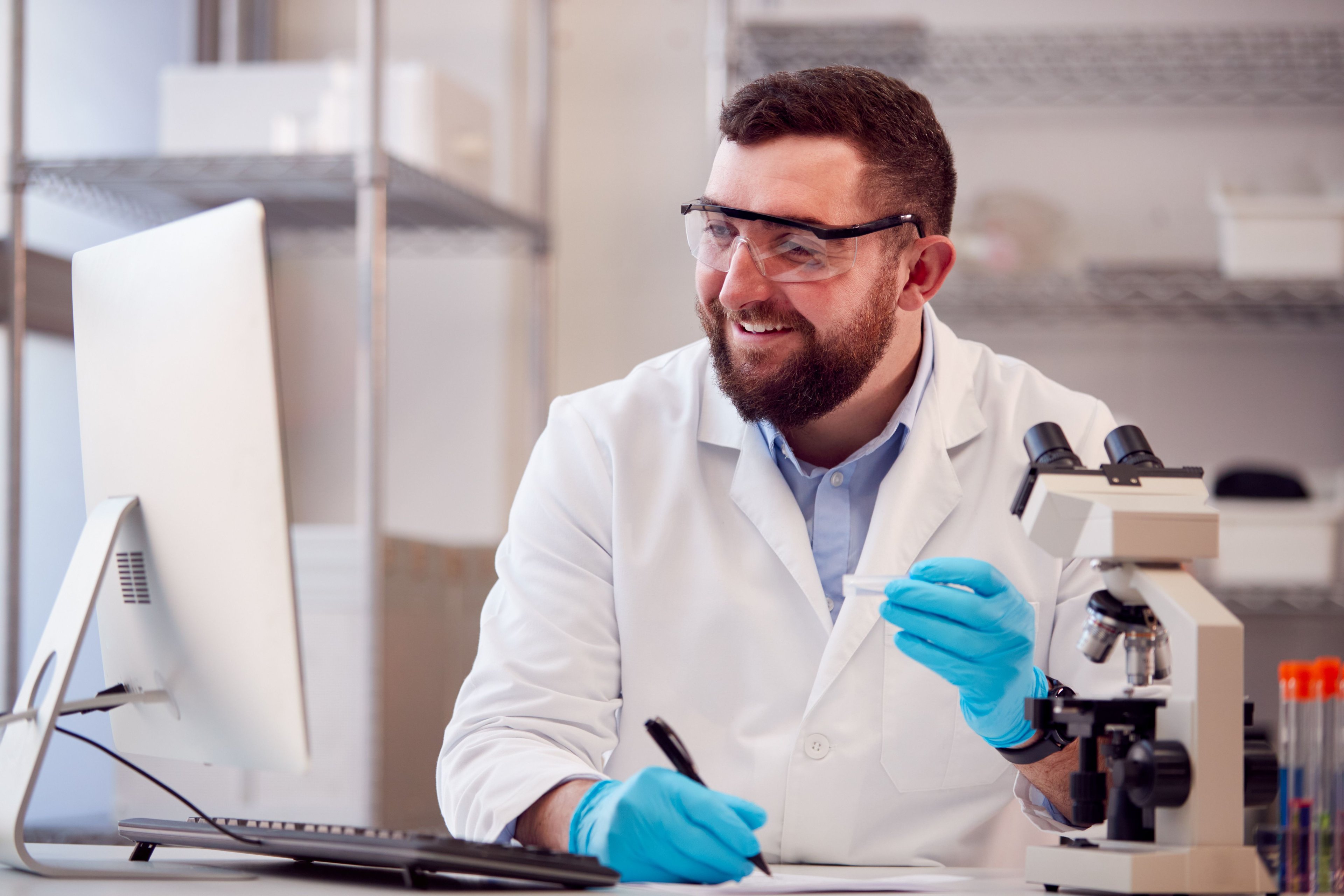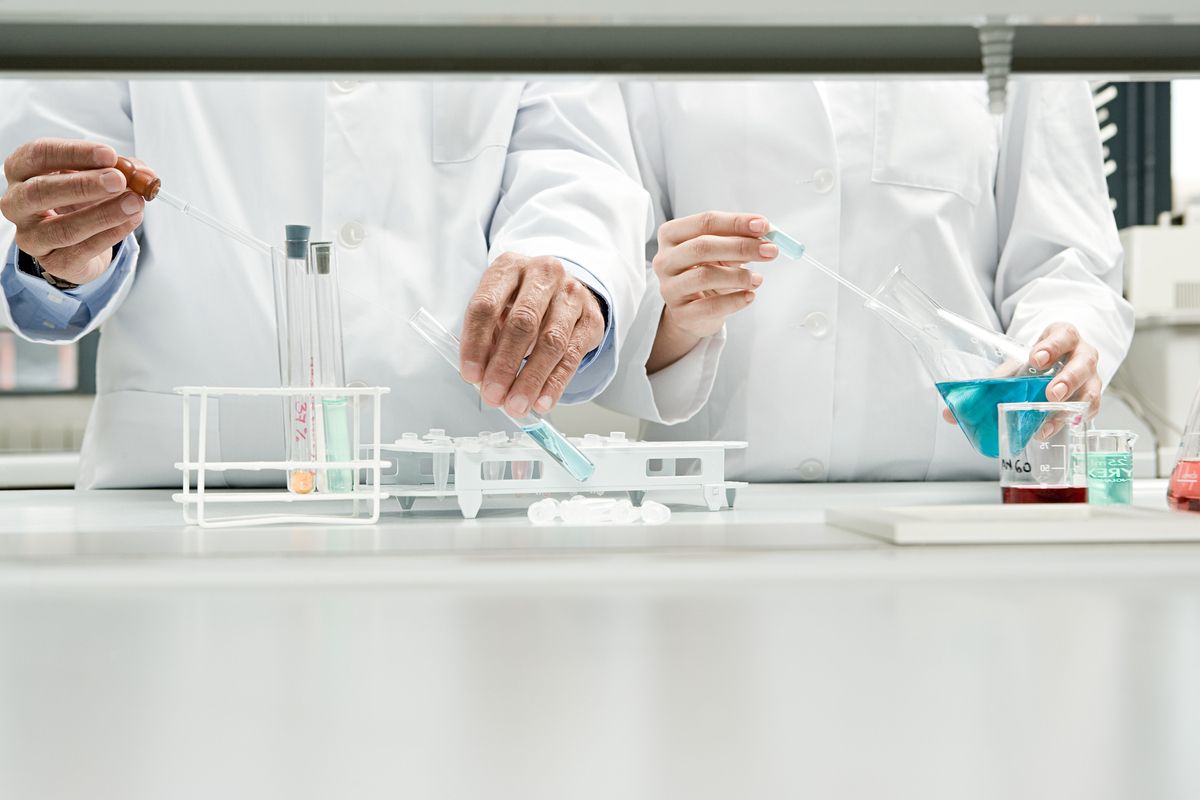The first commercialized product to emerge from Biogen Inc.'s (BIIB 0.43%) collaboration deal with Ionis Pharmaceuticals Inc. (IONS +0.48%) is an out-of-the-park home run. Building on an already successful partnership makes sense but handing the smaller biotech $1 billion upfront seems a bit extreme.
Can Biogen make the updated deal work for investors? Let's take a closer look to find out.

Image source: Getty Images.
A great day for Ionis Pharmaceuticals
Eager to bulk up its neuroscience pipeline, Biogen handed Ionis $375 million upfront plus a $625 million equity stake. This expands upon the earlier collaboration deal which included two early clinical programs and could see up to seven new potential drug candidates over the next two years. Biogen believes this discovery deal could validate at least 50 targets over the next ten years.
Biogen's going to foot the bill for development and commercialization expenses, leaving Ionis responsible for identifying potential new drug candidates and eligible to receive royalty and milestone payments should one of the partnered programs ever generate sales. It's a bit early to hammer out all the details, but this looks like it might be a better deal for Ionis than Biogen.
Over the last three years, Biogen spent $567 million advancing and commercializing Spinraza, a rare disease blockbuster that earned approval at the end of 2016. The drug generated an impressive $884 million in sales last year, but after handing $112 million in royalties to Ionis, you can see Biogen took a big risk for a payoff that's still a bit uncertain. By signing this deal, Biogen will probably end up taking several similar risks that might not pan out as well as Spinraza has.

Image source: Getty Images.
Why so eager?
Within a couple years, Spinraza sales could sink as quickly as they ascended, and there's little Biogen or Ionis could do about it. A potential competitor that uses a once-and-done method could pull the rug out from under Biogen's lead growth driver. Spinraza carries a list price of $125,000 per dose and requires multiple doses each year to help infants born with spinal muscular atrophy produce enough of a protein vital to their development.
Spinraza is the first approved drug to significantly improve odds of survival for infants born with spinal muscular atrophy, but during a clinical trial, 12 of 52 patients treated with the drug for at least 183 days died. That was far better than untreated patients, but the performance doesn't hold a candle to a candidate from AveXis Inc. that recently inspired Novartis to make an $8.7 billion buyout offer.
During a phase 1 study, all 15 patients treated with a single dose of AVXS-101 were alive and able to breathe unassisted at 20 months of age. We can't make an apples-to-apples comparison with Spinraza's clinical-trial performances, but it doesn't look good for the only new drug adding significant sales to Biogen's top line right now.
The company reported unit volume decreases across multiple sclerosis (MS) drugs responsible for 85% of total product sales. Price increases and Spinraza's contribution allowed the company to report a 5.5% gain compared to 2016, but a speedy approval for AVXS-101 could make it nearly impossible to keep the needle moving forward.
Not exactly what Biogen needs right now
Biogen's late-stage pipeline is like a fireworks display with one big rocket and a couple sparklers off to the side. While the task is daunting, the enormous unmet need for an effective Alzheimer's therapy could lead to eye-popping sales for aducanumab. Ongoing pivotal trials with this candidate probably have a better shot than any before it. So far, though, experimental therapies that work in the same way have all failed spectacularly.
Beyond its Alzheimer's moonshot, Biogen doesn't have anything hot to serve up soon. The company recently licensed a late-stage candidate from Alkermes that's very similar its lead drug Tecfidera. BIIB098 may have a differentiated profile, but that hardly makes its late-stage pipeline a fountain of innovation that can drive overall revenue growth.
Unfortunately, clinical-stage candidates aren't what Biogen's getting from this deal. Biogen's essentially paid $1 billion for an equity stake roughly equal to around 9% of Ionis' outstanding shares, which could smooth the path toward an outright acquisition later. Other than that, Ionis will essentially continue discovering potential new candidates for the treatment of neurological disorders, which Biogen can pay to develop under new terms that appear to favor Ionis.
Biogen might begin realizing a nice return on this investment over the long run. Over the next few years, though, it won't stop the company's top line from stagnating or falling if its late-stage pipeline coughs up nothing but smoke.
Editor's Note: The earlier version of this article incorrectly stated that this new collaboration deal required Ionis Pharmaceuticals to hand over two new drug candidates and advance up to seven more into clinical stage. This has been corrected to accurately reflect that this is an expansion of the existing discovery deal. The Fool apologizes for the error.






